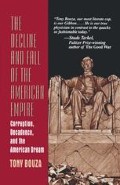Abstract
White, collar and street crime must first be defined if they are to be understood. Distinctions are important to the development of real solutions. Both a class and a race distinction must be made, since street crime tends to be the province of the poor, urban, largely black, and excluded underclass, while white collar crime felicitously conveys the notion of a white, educated, suburban, prosperous overclass. There are, as we’ve seen, important exceptions, but these mainly tend, by their comparative rarity, to prove the rule.
Access this chapter
Tax calculation will be finalised at checkout
Purchases are for personal use only
Preview
Unable to display preview. Download preview PDF.
Notes
Peterson, Virgil. The Mob: 200 Years of Organized Crime in N.Y.C. Ottawa: Green Hill, 1983.
“Hard Lesson in Gambling and the Law.” The New York Times, December 5,1995.
After eons of silence, the presses roared with new disclosures and fresh books. Among these were Ovid Demaris, The Last Mafioso. New York: Times Books, 1981; Gay Talese, Honor Thy Father. New York: World, 1971; and Vincent Teresa, My Life in the Mafia. New York: Doubleday, 1973.
Joe, Delbert, and Norman Robinson. “Chinatown’s Immigrant Gangs: The New Young Warrior Class.” Criminology 18, November 1980, pp. 337–345.
Lasky, Victor. It Didn’t Start with Watergate. New York: Dial, 1977.
Powers, Richard Gid. G Men: Hoover’s F.B.L in American Popular Culture. Carbondale, IL: Southern Illinois University Press, 1983.
The Challenge of Crime in a Free Society. Washington, DC: U.S. Government Printing Office, February 1967.
See the Congressional Reports on these hearings for detailed exchanges and insights.
An Introduction to Organized Crime in the United States (FBI report). Washington: DC: 1993.
“Faces of Reputed Mobster: Very Sick or Very Clever.” The New York Times, September 12,1995.
“Jury Convicts Philadelphia’s Mob Leader.” The New York Times, November 22,1995.
Cummings, John. Goombata: The Improbable Rise and Fall of John Gotti and His Gang. Boston: Little, Brown, 1990.
The Edge: Organized Crime, Business and Labor Unions. Washington, DC: President’s Commission on Organized Crime, 1986.
“Labor Costs Still Sky-High at Shaken-Up Javits Center.” The New York Times, October 29,1995.
“U.S. Contends Major Festival Is Run by Mob.” The New York Times, September 2,1995.
“San Gennaro’s Officials Outearn Charity.” The New York Times, September 24,1995.
“Government to Take Over Hotel Union.” The New York Times, August 27,1995.
“Witness Says Crime Figures Rule Disposal of Toxic Waste.” The New York Times, September 20,1984.
Rights and permissions
Copyright information
© 1996 Tony Bouza
About this chapter
Cite this chapter
Bouza, T. (1996). Organized Crime. In: The Decline and Fall of the American Empire. Springer, Boston, MA. https://doi.org/10.1007/978-1-4899-6034-4_6
Download citation
DOI: https://doi.org/10.1007/978-1-4899-6034-4_6
Publisher Name: Springer, Boston, MA
Print ISBN: 978-0-306-45407-3
Online ISBN: 978-1-4899-6034-4
eBook Packages: Springer Book Archive

